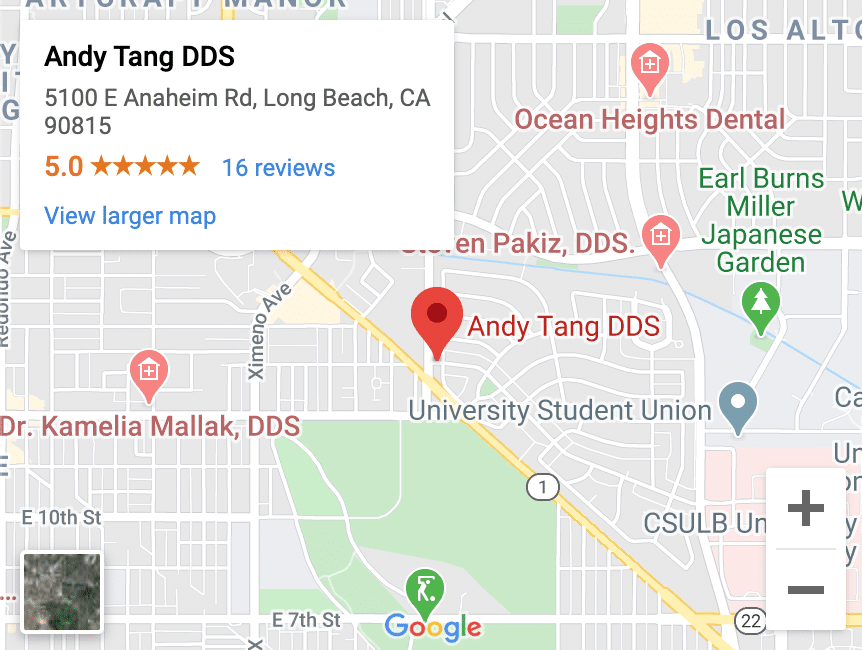You don’t need to be concerned if your dentist prescribes a root canal treatment to treat a diseased or damaged tooth. According to the American Association of Endodontists, dentists treat and save millions of teeth each year, which helps to relieve pain and make teeth healthy again.
What is a Root Canal?
A root canal is designed to:
- Get rid of bacteria from an infected root canal
- Save the natural tooth
- Prevent reinfection of the tooth
When you undergo a root canal, the dentist removes the infected or inflamed pulp and carefully cleans and disinfects the inside of your tooth. They then fill it and seal it.
There are several things that could damage the nerve or pulp of your tooth. While most individuals will experience pain or another symptom alerting them they require a root canal, often there aren’t any symptoms or warning signs.
Signs You May Need a Root Canal
A few signs that may indicate you require a root canal are:
- Serious pain while biting or chewing
- Pimples on your gums
- A cracked or chipped tooth
- Tender or swollen gums
- Lingering sensitivity to cold or hot
- Darkening of the gums or deep decay
If your tooth becomes abscessed, you will need a root canal. Abscesses are infections that form when the tooth pulp dies and forms a pus pocket around the end of your root. The pus builds up in a dead nerve tissue area that’s infected with bacteria. In some cases, the abscess forms a bump that looks like you have a pimple on the outside of your gums. You might have a bad taste in your mouth or see pus draining from the pimple.
Abscesses that are left untreated will continue growing and infect your bone around the root of your tooth. They might spread into your surrounding tissues and bone. In extreme cases, an untreated tooth abscess can be fatal. While antibiotics can help keep your infection from spreading, a root canal treatment is needed to completely remove the infection and clean out all the bacteria and dead tissue inside your root canals and pulp chamber.
Benefits of a Root Canal
There are many benefits of having a root canal treatment done to save your natural tooth, including:
- Normal biting force and sensation
- Efficient chewing
- Protects your other teeth from excessive strain or wear
- Natural appearance
What Happens During a Root Canal?
First, your dentist will use a local anesthesia to numb the area. Most people report that a root canal is no more uncomfortable than having a filling place. The dentist uses various specialized tools, which include dental files. You’ll hear these instruments and feel vibrations, but likely won’t feel pain. Since you’re given anesthesia, a root canal will feel similar to a regular dental procedure, like receiving a filling or having a tooth removed. During your root canal procedure, the dentist removes both the pulp and nerve and the inside of your tooth is cleaned and sealed.
If your root canal is not finalized on the first day, you’ll receive a temporary filling to keep out food and saliva before your next appointments. During your next appointment, the dentist fills the tooth’s interior with a rubber compound (sealer paste) called gutta percha. The final step involves restoration of your tooth, with a crown for example.
What to Expect After a Root Canal
Most root canal treatments are performed in one or two visits. The first appointment is where the dentist removes the infected pulp. The second appointment is where the dentist cleans and fills the root canal with a crown or other restoration to prevent infection. Each appointment will last around 90 minutes each.
Root canals are typically a little numb or sore after the procedure and could cause some mild discomfort for several days.
You shouldn’t bite or chew on the treated tooth until the dentist has fully restored it. An unrestored tooth is vulnerable to fracture, therefore you should visit the dentist for a complete restoration as soon as possible. Other than this, you simply need to practice good dental and oral hygiene like:
- Brushing twice a day
- Flossing once a day
- Routine dental checkups and cleanings
While you’ll likely be number for a couple hours after your procedure, most individuals can return to work or school right after a root canal. But, you shouldn’t eat until this numbness goes away completely.
Most endodontically treated teeth will last as long as your other natural teeth. Sometimes, however, a tooth that has undergone endodontic treatment doesn’t heal or you continue experiencing pain. In some cases, the tooth could become diseased or painful months or years after successful treatment. However, if this happens, the dentist can save the tooth by redoing the endodontic procedure.


